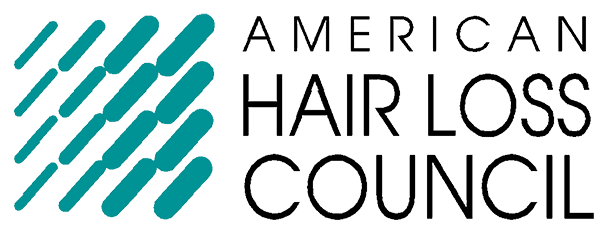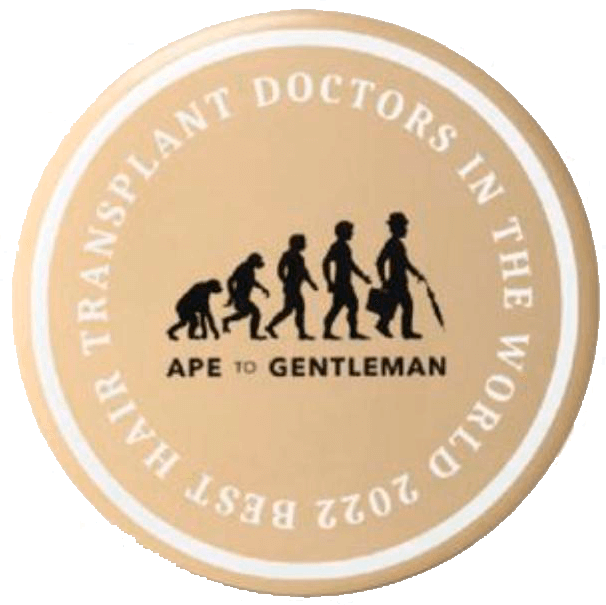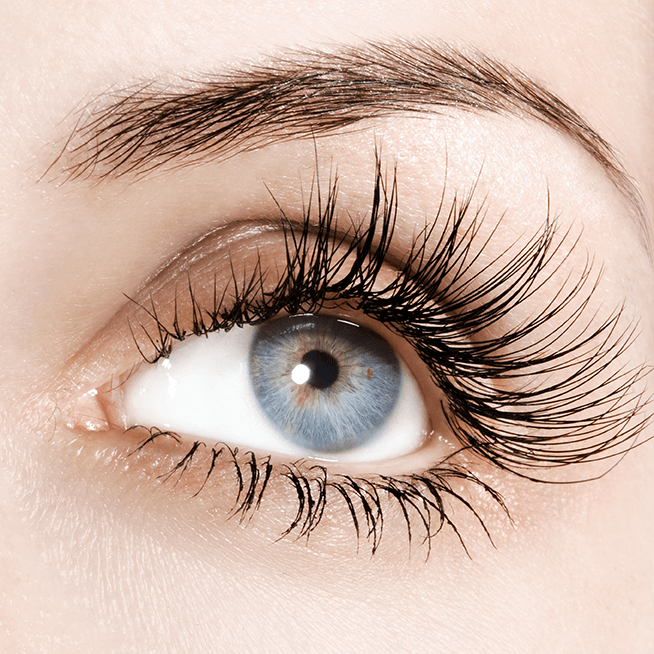
The Award-winning Bauman Turbo LaserCap is the most technologically advanced portable low-level laser light therapy (LLLT) device for hair regrowth currently available. Recommended for those with thinning hair, as well as hair loss prevention and overall hair health.
No matter what you call it, hair loss can be upsetting. I hear that every day from patients who turn to me for help. But what I also see are smiles each time I deliver the good news to a patient that there’s something that can be done about it, especially when they see their results in the mirror.
September is Alopecia Areata Awareness Month, so I’m taking this opportunity to tell you a little about the most common forms of alopecia and why there are good reasons to relax and cheer up.
Recently, actress Jada Pinkett-Smith claimed she has alopecia on social media. You’ll probably recall that her bald head was the inspiration for a joke told by 2022 Academy Awards host Chris Rock, prompting her husband, Will Smith, to go onstage and slap him.
“Alopecia” is the general medical term physicians use to describe hair loss from many different causes, all of which, fortunately, we can help with here at Bauman Medical. Perhaps you’ll recognize what you’re experiencing in one of these descriptions.
Alopecia Areata (AA)
Alopecia Areata occurs when your immune system mistakenly attacks hair follicles, causing inflammation that halts hair growth suddenly. Hair typically falls out in small, round patches on the scalp about the size of a quarter, thus its common name, “patchy alopecia areata.” Actress Viola Davis (How to Get Away with Murder) says she’s been dealing with AA since the age of 28.
Alopecia Areata typically begins with the sudden loss of hair on the scalp, but any part of the body may be affected. Causes can be varied: genetics, emotional stress, an autoimmune disease such as psoriasis, thyroid disease, or vitiligo, as well as food and environmental allergies. In my practice, we’ve recently seen bouts of alopecia Areata occur after COVID infections and mRNA vaccinations.
AA affects women more than men, including all racial and ethnic groups. Most people with the disease are healthy with no other symptoms. In most cases, the hair eventually regrows, but there may be subsequent episodes of hair loss. There’s no cure for AA, but we do have treatments that help hair grow back more quickly and be less likely to recur.
Alopecia Totalis (AT)
Alopecia Totalis, an advanced form of alopecia Areata, is characterized by the complete loss of hair on the scalp and head—including eyebrows and eyelashes. Its exact cause is unknown, but as with AA, researchers believe that the immune system mistakenly identifies hair follicles as a threat and attacks them.
It’s more common in people with autoimmune conditions, such as an overactive thyroid or diabetes. Men and women are affected in equal numbers. Roughly 20% of affected people have a family member with AT, suggesting that genetic factors may contribute to its development.
Alopecia Universalis (AU)
This rare genetic condition is another even more advanced form of alopecia Areata in which the immune system attacks hair follicles across the entire body. A person with AU loses all their hair, including eyebrows and eyelashes, facial hair, body hair, and hair on the head. This hair loss can be permanent or temporary.
Traction Alopecia (TA)
Traction alopecia is caused by regularly pulling your hair too tightly. Constant tension or “traction” that pulls on the hair shaft over time can weaken and eventually permanently damage the follicle. African American women are specifically at risk due to hairstyling habits that begin at a young age, though it can affect people of all races and ethnicities. Typical examples include wearing a very tight ponytail or bun, tight braids, cornrows, or dreadlocks, as well as the use of hair extensions, glued-on hairpieces, and weaves.
Cicatricial Alopecia (CA)
Cicatricial alopecia, also known as scarring alopecia, can be caused by inflammation or another traumatic or surgical injury to the skin. In the case of a surgical scar, the skin heals but does not recreate hair follicles in that area. Inflammatory conditions of the scalp can destroy hair follicles permanently if not treated early, replacing follicles with scars. It’s thought that inflammation destroys the stem cells and oil glands of the follicles, resulting in a gradual development of round bare patches on the scalp that expand with time.
Androgenetic Alopecia (AGA)
Androgenetic alopecia is the most common form of hair loss. Though it’s often referred to as male pattern baldness, hereditary androgenetic alopecia affects both men and women. In men, the hairline recedes, and the crown progressively thins, leading to total hair loss in a very specific pattern, sparing the sides and back of the scalp. In women with hereditary hair loss, the hair in the frontal area typically becomes diffusely thinner, and the temples can recede. AGA is caused by a mixture of genetic and hormonal factors and can start as early as puberty.
Telogen Effluvium (TE)
Telogen effluvium results from a sudden and temporary diffuse hair loss due to excessive shedding of resting or telogen hairs. This abrupt shedding can be triggered by severe illnesses like COVID, a restrictive diet, rapid weight loss, psychological or physiological stress, childbirth, or other traumatic events. If the shedding phase and hair loss continue for more than six months, it’s considered chronic telogen effluvium (CTE.) Keep in mind that you may have more than one type of hair loss occurring at the same time – for example, Androgenetic Alopecia along with Telogen Effluvium.
What can be done about alopecia?
At Bauman Medical, we have numerous ways to help patients who are noticing hair thinning, shedding, or loss of coverage. Effective treatment starts with an accurate diagnosis, and we say “Time is Follicles” because the earlier the treatments are started, the better results you’ll experience. Here are a few of our advanced tools and treatment options:
Oluminant/Baricitinib
The newest option for AA alopecia areata is an FDA-approved drug called Oluminant (baricitinib). Oluminant was approved after being shown to result in enough hair growth to be deemed “adequate scalp coverage” in between 17 percent and 32 percent of patients (depending on dosage) taking part in two double-blind, randomized, placebo-controlled clinical trials. Some of the regrowth seen in the clinical trials were downright dramatic. When appropriate, I’m prescribing this, but cautiously, as side effects from these types of immune modulators can involve serious heart-related events, cancer, blood clots and death.
PRP (Platelet-Rich Plasma)
A comfortable in-office procedure with no recovery time, downtime, or significant risk. Derived from a small blood sample, platelets are separated from other components of the blood, concentrated, then painlessly applied into the scalp under local anesthesia where weak hair follicles exist, promoting hair growth for at least a year among most Bauman Medical patients.
PDOgro™
Researched and developed right here at Bauman Medical, we were the first hair restoration clinic in the U.S. to use PDO threads to enhance hair growth. PDO, or polydioxanone, is a synthetic absorbable FDA-cleared material placed in the scalp to stimulate hair growth. The threads dissolve and are absorbed over time, safely stimulating collagen production and new blood vessel formation, and triggering the release of powerful hair rejuvenating growth factors within the skin. Typically done with PRP, the results can last 12-18 months.
Bauman TURBO LaserCap®
Our TURBO LaserCap® delivers 100% non-invasive low-level laser therapy (also known as red light therapy or photobiomodulation) to the scalp, scientifically proven to improve hair quality, strength, and thickness and to promote hair regrowth. Use it at home just five minutes daily for improved hair growth. It’s drug- and chemical-free with no risk of side effects.
Hair transplantation: In some cases, hair loss is so advanced that a hair transplant is the only way to achieve lasting hair regrowth. Today’s hair transplant procedures are 100% natural looking. Luckily, hair transplant procedures have become more effective, more comfortable, less invasive, and 100% natural-looking due to major innovations in techniques, technology, and artistry.
Interested in learning more about how we can give you something to smile about when it comes to your hair loss? It starts with getting to the root of your hair loss situation.
Give us a call at 561-220-3480 or schedule your private one-on-one in-person or virtual consultation.
Genetics and Hair Loss
There are now over 200 known DNA genetic variations (SNPs) that contribute to hair loss.
Hair loss genes can be inherited from either your mother’s or father’s side of the family or a combination of the two.
Hair loss can start as soon as puberty ends, depending on your hereditary sensitivity to DHT dihydrotestosterone, a metabolite of testosterone.
Color quality, texture, length of growth cycles, balding patterns, the speed of balding – all of those put together determine how quickly you see loss occur and how quickly it progresses.
Because it is polygenic with variable penetrance, hair loss can skip generations, skip siblings, etc.
Medical DNA tests (e.g., HairDX or TrichoTest™) can include a prediction of whether you are likely to experience hereditary hair loss and what treatments are likely to work best for you based on your unique DNA.
BAUMAN MEDICAL
Hair Restoration for Men and Women
www.BaumanMedical.com
561-220-3480
If you or someone you know has hair loss, hair thinning, baldness, or eyebrow / eyelash concerns, click to start either a long-distance virtual consultation OR an in-person, in-office consultation with Dr. Bauman. You can also Ask Dr. Bauman a Question or simply call Bauman Medical Group at +1-
*Each individual's treatment and/or results may vary
The content in this post originally appeared on SFHealthAndWellness.com




 Soothe stress and improve hair with this free gift
Soothe stress and improve hair with this free gift Looking for the Best in Hair Restoration? Why Bauman Medical Stands Out.
Looking for the Best in Hair Restoration? Why Bauman Medical Stands Out. VIDEO: How To Choose The Right Hair Transplant Surgeon
VIDEO: How To Choose The Right Hair Transplant Surgeon VIDEO: Dr. Bauman Shares His Journey to Hair Restoration Excellence
VIDEO: Dr. Bauman Shares His Journey to Hair Restoration Excellence Dr. Alan J. Bauman, M.D.Hair Loss & Hair Transplant ExpertBoca Raton, FL
Dr. Alan J. Bauman, M.D.Hair Loss & Hair Transplant ExpertBoca Raton, FL






